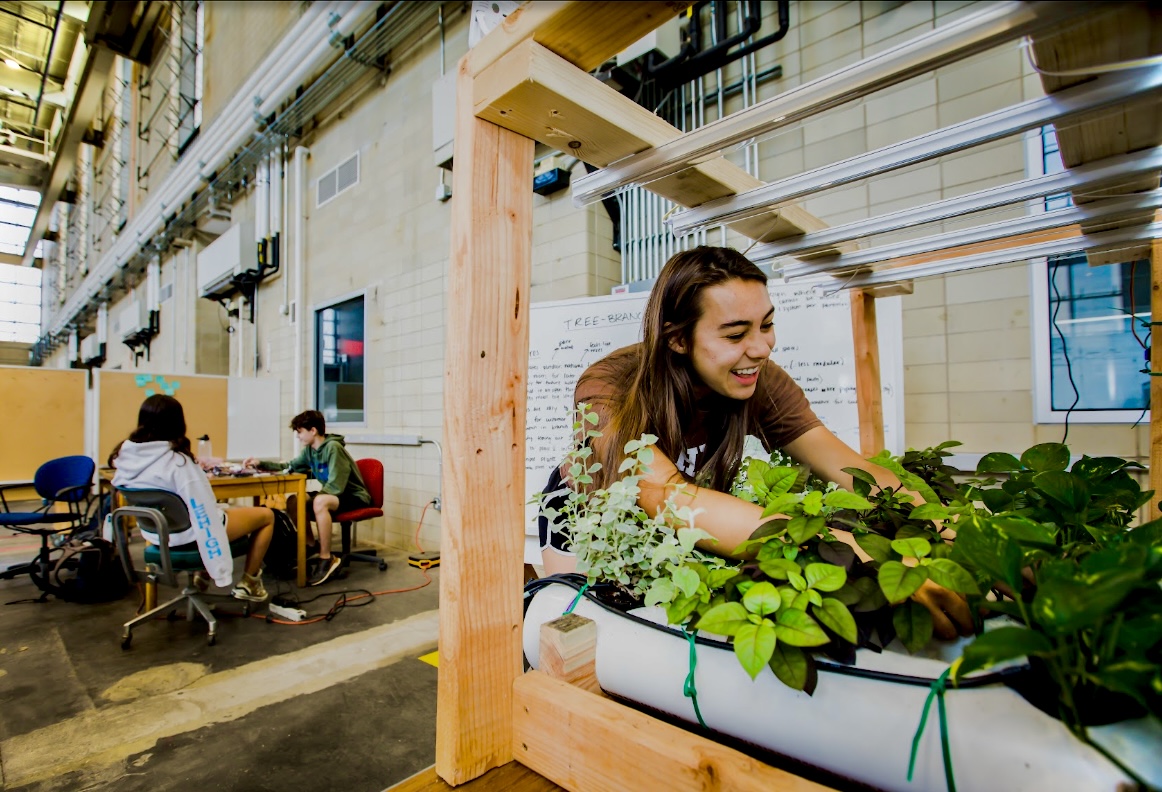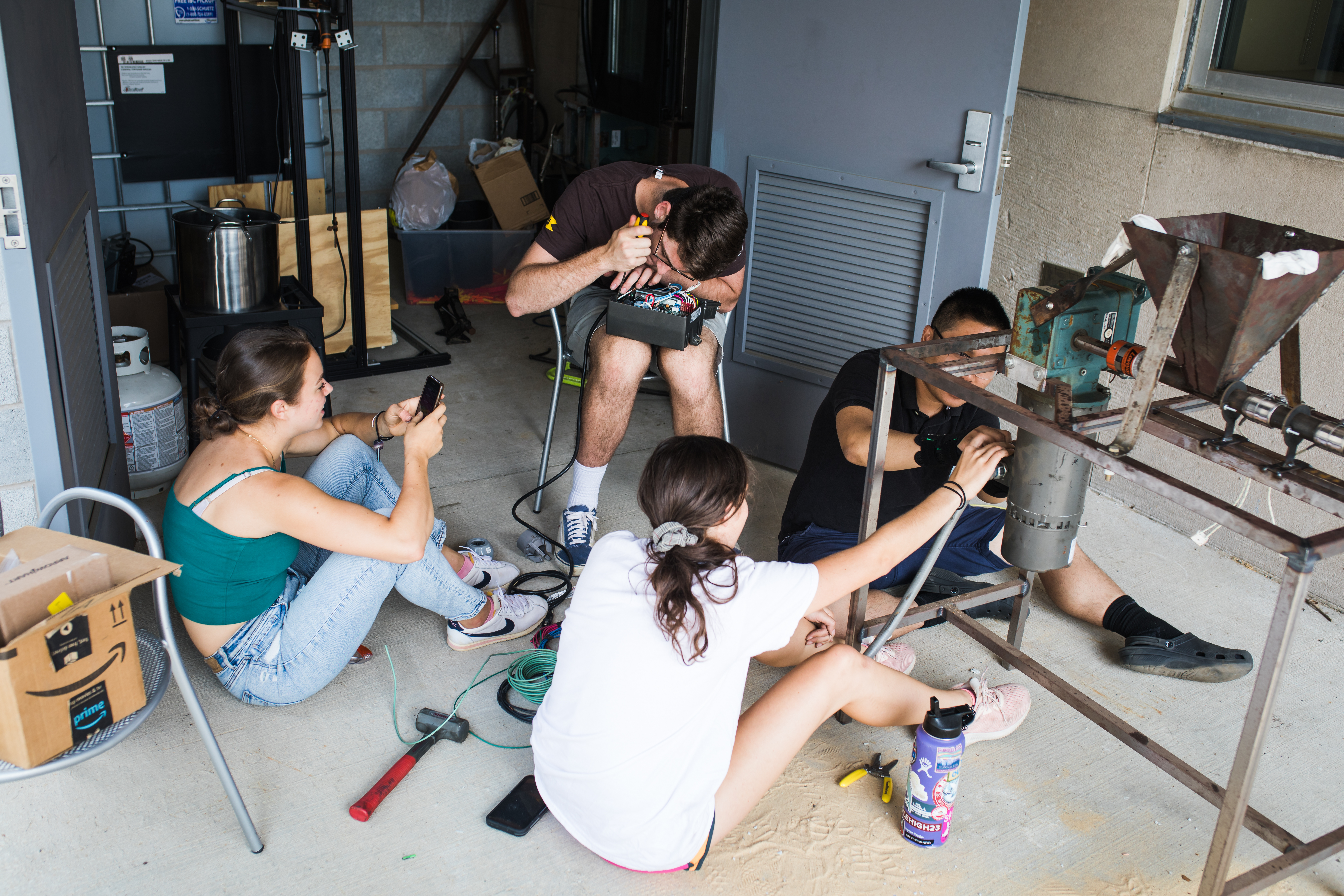Last semester’s Creative Inquiry Exposition featured the work of 25 projects by undergraduate Lehigh students this past summer. For all the driven, intelligent women and men who participated, the event was an opportunity to have their hard work recognized and celebrated. However, this experience meant even more for many female students who see themselves as continuing the legacy of the first undergraduate women who started at Lehigh in 1971.
The talented young women are the future of STEM, and they are proving themselves in their male-dominated fields. In collaboration with their male counterparts, these women devoted their time to creating a tangible and transformative impact.
Sickle Cell Anemia Diagnostic Device
Most of these female students’ motivation to participate in the Mountaintop Experience stemmed from their passions to impact the world and continue their research. The Sickle Cell Anemia Diagnostic Device project, composed of 11 undergraduate students – nine females and two males – developed point-of-care test strips for sickle cell disease. Their mission is to reduce the high mortality rate in Sierra Leone and provide communities with widely available tests.
However, the team credits their success to their mentor, Professor Xuanhong Chen. Without Chen’s guidance, the team believes their progress would not be possible. Laura Duffany ’23 said Chen’s commitment to their venture motivates her to focus on her research and studies.
“She’s such an accomplished professional and definitely inspires me to keep working hard,” Duffany said.
Teammate Alice Chen ’24 stays motivated as a female in a competitive field by aiming to leave a legacy as a role model for incoming first years. Dream Intarachumnum ’22 and Katie Goettle ’23 shared their experience battling the pressures of being women in STEM. Their passion is to keep improving their test strips and changing the future of sickle cell disease treatment in Sierra Leone.
“The mechanical engineering field is male-dominated, so it was empowering to work with so many female students on this project because we all want to pave the way for younger women pursuing the same path,” Intarachumnum said.
EcoRealms Environments
Evy Rahmey ‘24 and Giavanna Gast ‘24 spent their summer creating a prototype for “living spaces'' – cubicles or partitions with a low-maintenance hydroponic system that houses non-allergenic plants. The EcoRealms Environments team’s work is now featured on the fifth floor of Fairchild-Martindale Library. Rahmey’s interest in environmental engineering led her to join the group. She learned how to succeed as a woman in her field by recognizing her capabilities and exploiting her strengths and weaknesses.

“It’s very empowering to see the integration of females not only at Lehigh but also at universities worldwide where women aren’t standing in the shadows anymore,” Rahmey said.
Gast finds inspiration through Katherine Johnson, a pioneering black woman, and NASA mathematician, to continue achieving her goals and shaping the world with her sustainable efforts.
“It really goes to show how much can change in such a short amount of time, and it makes me feel incredibly privileged to have this opportunity and a community that fostered my STEM interests growing up,” Gast said.
PlasTech Ventures
The PlasTech Ventures project aligned with Cayla Brint’s passion for sustainability. Her team’s goal is to combat the plastic waste crisis in the Philippines by repurposing post-consumer plastic into higher-value, longer-lasting products. As a chemical engineer, Brint developed a strong relationship with former Creative Inquiry coordinator Kimberly Buono who supported her during the Mountaintop Experience. Buono’s calming presence eased the serious environment for Brint.
“She was so supportive throughout knowing me and always offered advice and kindness,” Brint said.
However, Brint said she wouldn’t be in the same spot without the help of her project mentors: inaugural Vice Provost for Creative Inquiry and Director of Mountaintop Initiative Khanjan Mehta, Administrative Director of Mountaintop Initiative Bill Whitney, Managing director of Lehigh Design Labs Brian Slocum, and Franklin J. Howes Jr. Distinguished professor Manoj Chaudhury. She appreciates the support and guidance from these male faculty members as she takes on a male-dominated field.

“There are certain expectations and pressures I face as a female in STEM, but my support system of male and female faculty combined with the opportunity to follow my passion for sustainability allows me to stay on top of my goals,” Brint said.
This summer, Brint is working for NASA through the Kennedy Space Center as a virtual spring intern. She will join the Space Crop Production team to develop optimized space crop production systems for NASA.
NeuroSalon
Zena Meighan ’22 and her teammates worked together to launch their interdisciplinary project, NeuroSalon. The project seeks to promote creativity by bridging the gap between brain sciences and the arts. Their work brings these two disciplines together by encouraging stimulating and thought-provoking dialogue. Meighan doesn’t subject herself to criticisms or expectations about her career path.
Meighan looks to her family for a push of confidence and motivation as she pursues a Japanese major. Her grandparents immigrated to America from Africa to live a better life, and Meighan reminds herself of their impact on her life today.
“I try to keep my head up to make all the hardships they went through worthwhile,” Meighan said. “I was given the opportunity to get a higher education, and I’m going to do what I want with it as a woman in a male-dominated world, and I’m not going to feel bad about it because it’s off the beaten track.”
Paw Power
Alyssa Klinger ‘22 spent her time a little differently as her group worked on the Paw Power Project. Their team recognized the pitfalls of dog waste management, including the alarming amount of dog waste produced yearly that ends up in landfills. Klinger and her team figured out a solution, a dog waste biodigester. The biodigester uses bacteria to break down the organic waste to produce methane and provide a sustainable fertilizer as the end product.
Rewriting the Script 2.0
Rita Knasel ‘21 and Isabel Koval ‘24 collaborated with their team to design virtual racial embodiment interactions to transform U.S. race relations. The Rewriting the Script 2.0 team developed VR scenarios using political theater theories to allow users to embody the “other” to increase empathy.
Although these women aren’t quite alumnae just yet, they are paving the way for the next generation of women leaders in STEM. These featured students are breaking down societal barriers and uncovering solutions to significantly impact our society.